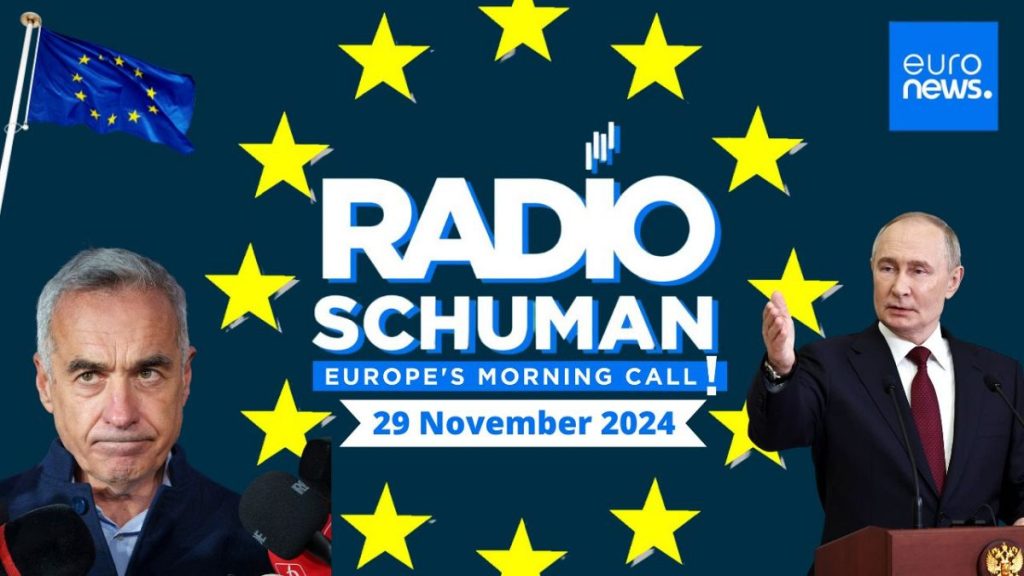The unexpected rise of Calin Georgescu, a far-right leader, in the first round of Romania’s presidential election has ignited significant debate regarding Russian influence in the country. Historically, Romania has maintained a stance of skepticism towards Russia, with politicians typically refraining from openly aligning with Moscow. This sentiment was echoed by Romanian centre-right Member of the European Parliament (MEP) Siegfried Muresan in a recent Radio Schuman episode. He characterized Georgescu, a relatively unknown figure who also has a presence on TikTok, as embodying an “anti-European stance.” This description reflects concerns that Georgescu may be attempting to undermine the core values of the European Union (EU) and the rule of law within Romania, which is particularly critical as the nation navigates this political landscape.
Initially projected to receive less than 10% of the vote, Georgescu’s unexpected success has raised many questions regarding the dynamics of the election and the political environment in Romania. As he progresses to face liberal candidate Elena Lasconi in the scheduled runoff on December 8, there are looming uncertainties about whether legal challenges could disrupt this electoral process. The broader implications of this election ripple beyond Romania’s borders, placing the nation in a position akin to that of Georgia and Moldova. Both countries are currently embroiled in politically charged struggles between democratic, pro-Western ideals and the rising tide of nationalist, pro-Russian sentiment.
The significance of this election outcome cannot be overstated, especially considering Romania’s strategic position as an EU member state with a critical border shared with Ukraine. Additionally, Romania serves as an important NATO military base, which raises the stakes not only for national security but also for regional stability in Eastern Europe. Observers are keenly interested in how Romania’s pro-European forces in both Bucharest and Brussels will strategize to counter Georgescu’s rise, particularly if he garners additional support ahead of the runoff election. The urgency of the situation is compounded by prevalent threats from aggressive external influences, particularly from Russia.
While the rise of Georgescu has prompted questions about the nature of Romania’s ties to Russia, it also serves as a litmus test for broader trends in the region. The political climate suggests a growing division between those who champion democratic governance, alignment with Western values, and those who may seek to revert to more nationalistic and pro-Moscow affiliations. Analysts warn that the outcome of the Romanian elections may embolden similar nationalist movements in neighboring countries, potentially jeopardizing democratic gains and European integration efforts.
In addition to the electoral focus, discussions surrounding Georgescu’s appeal and the broader existential threats to democracy have led to an examination of the underlying socio-economic factors influencing voter behavior. Potential voters may be driven by concerns such as economic instability, social inequality, and a desire for change from traditional political structures, which populist figures often exploit. Understanding these motivations will be crucial for Romania’s political establishment as it seeks to reassure the public and counteract any anti-European narratives that could resonate with constituents.
Lastly, it is essential to highlight the current realities facing Romania as it grapples with not just electoral challenges but also mental health concerns among its workforce. Radio Schuman seeks to shine a light on these issues, bringing attention to the holistic implications of political and socio-economic conditions in Europe. The interplay between mental health, economic pressures, and political sentiments underscores the need for comprehensive, responsive governance that addresses the multifaceted challenges of modern society. As the runoff date approaches, the outcomes of the current political contention will be pivotal for Romania and its role within the wider European context.














